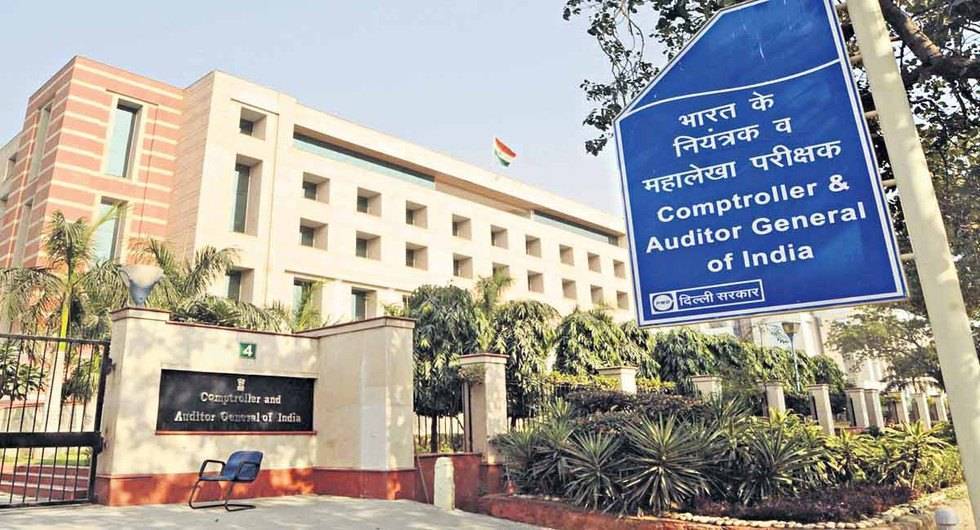A performance audit conducted by the Comptroller and Auditor General (CAG) of India has unearthed significant irregularities in the functioning of the Yamuna Expressway Industrial Development Authority (YEIDA). Covering a 15-year period from 2005-06 to 2020-21, the report scrutinizes YEIDA’s policies and procedures concerning land acquisition, development, property construction, and allotment. It also sheds light on gaps in master planning, property pricing mechanisms, and internal controls, raising serious concerns about governance and operational efficiency.
Presented in the Vidhan Sabha, the report comes in the context of controversies surrounding two industrial plots whose lease cancellations by YEIDA’s former chairman were overturned by the Allahabad High Court. The findings not only highlight procedural lapses but also reveal deeper structural issues that jeopardize the region’s planned development.
Key Findings of the Audit
1. Non-Conformity with Regional Plan 2021
The report points out that YEIDA’s development activities failed to align with the Regional Plan 2021. This deviation constitutes a violation of the National Capital Regional Planning Board Act, 1985. As the Regional Plan serves as a guiding framework for coordinated urban development across the National Capital Region (NCR), YEIDA’s non-compliance disrupts the vision of integrated and sustainable growth. Such actions result in haphazard development that can strain existing infrastructure and resources.
2. Deficiencies in Master Planning
Lapses in the preparation and execution of master plans were a recurring issue. The audit revealed that YEIDA failed to adhere to approved guidelines for land-use planning, leading to inefficient allocation of resources. Critical aspects such as zoning, infrastructure provisions, and environmental considerations were overlooked. The absence of a coherent master plan diminishes the region’s potential for balanced development and hampers the delivery of essential services.
3. Irregularities in Land Acquisition
Land acquisition practices were riddled with inefficiencies. The report highlighted procedural delays, non-compliance with mandatory acquisition protocols, and unnecessary land purchases. Such practices not only escalated costs but also led to unproductive utilization of financial resources. In some cases, the authority acquired land without clear plans for its development, resulting in avoidable expenditures and project delays.
4. Flawed Property Pricing Mechanisms
The CAG report flagged inconsistencies in YEIDA’s property pricing policies. These discrepancies stemmed from the absence of standardized pricing norms, resulting in variations that often lacked justification. The audit found instances where properties were overvalued or undervalued, creating dissatisfaction among allottees. This lack of uniformity undermines confidence in YEIDA’s ability to administer fair and transparent transactions.
5. Opaque Property Allotment Procedures
The allotment of properties was found to be non-transparent and heavily influenced by discretionary practices. Interviews played a significant role in the allotment process, opening doors to favoritism and potential corruption. The lack of clear criteria for allotments eroded public trust and raised questions about the integrity of YEIDA’s governance model.
6. Weak Internal Controls and Oversight
The audit exposed systemic weaknesses in YEIDA’s internal controls. Operational guidelines were either inadequate or entirely absent, leading to inconsistencies in decision-making. This lack of oversight allowed procedural lapses to persist unchecked, further compounding governance issues. The absence of effective internal audits and accountability measures contributed to inefficiencies and increased the risk of financial mismanagement.
Addressing the Anomalies
To address the issues highlighted in the CAG report, a comprehensive overhaul of YEIDA’s operational framework is necessary. One of the key recommendations is ensuring strict adherence to the Regional Plan 2021. YEIDA must align all activities with the plan and obtain requisite approvals from the National Capital Regional Planning Board. Any deviations from approved plans should be carefully documented and justified to prevent similar violations in the future.
Improving master planning is another critical area for reform. Periodic reviews of master plans should be conducted to ensure they meet current development needs. These plans must incorporate zoning laws, infrastructure requirements, and environmental considerations to support balanced and sustainable growth in the region. Additionally, the land acquisition process requires significant streamlining. Measures should be implemented to reduce delays and avoid unnecessary purchases. Strengthening project planning will ensure that land acquisition aligns with specific development objectives and minimizes resource wastage.
Establishing a standardized and transparent pricing framework for properties is also essential. Regular reviews of pricing mechanisms should be conducted to reflect market conditions and eliminate inconsistencies. This will ensure fairness in property transactions and foster greater trust among stakeholders. Transparency in property allotments must also be prioritized. Clear, objective criteria for allotments should be introduced to eliminate discretionary practices, while the adoption of digital platforms can enhance transparency and reduce the scope for human intervention.
Finally, internal controls within YEIDA need substantial improvement. Comprehensive operational manuals should be developed to clearly define processes and responsibilities, ensuring better accountability. Additionally, the internal audit system should be strengthened to ensure adherence to guidelines, improve oversight, and detect irregularities at an early stage.
Implications and Call to Action
The CAG report not only highlights YEIDA’s administrative failings but also underscores the urgent need for systemic reforms in the functioning of industrial development authorities. The findings point to a broader issue of governance gaps in urban planning bodies, which, if left unaddressed, could hinder the NCR’s development trajectory.
By implementing the recommended measures, YEIDA can restore public trust, improve operational efficiency, and contribute more effectively to the region’s growth. This requires a commitment to transparency, accountability, and adherence to regulatory frameworks.
The report serves as a wake-up call for YEIDA to realign its priorities and operations to fulfill its mandate of planned and sustainable development. Only through diligent efforts can the authority ensure that it delivers on its promise of fostering economic growth and improving the quality of life in the region.









.png)